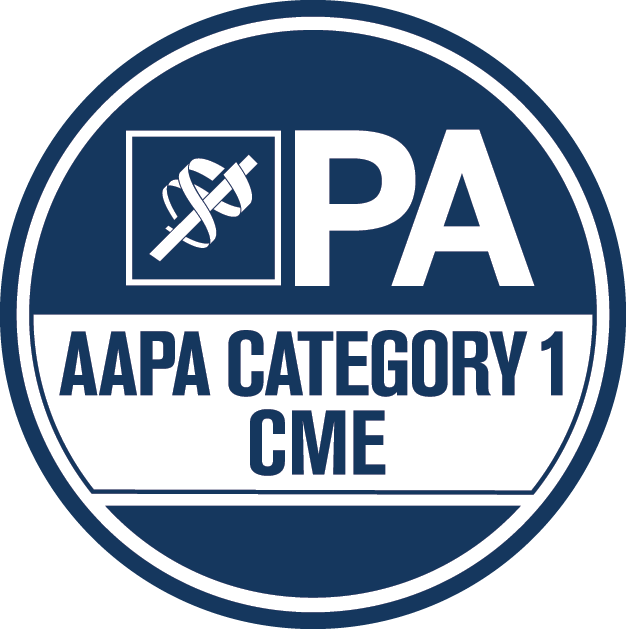Announcer:
Welcome to CME on ReachMD. This episode is part of our MinuteCME curriculum.
Prior to beginning the activity, please be sure to review the faculty and commercial support disclosure statements as well as the learning objectives.
Dr. Levesque:
This is CME on ReachMD. I'm Dr. Annie Levesque, and here with me today is Dr. Edwin Salsitz.
So the first case is the 45-year-old male who was diagnosed with a Moderate alcohol use disorder about a year ago. He has a family history of alcohol use disorder on both sides of his family. His uncle died of cirrhosis of the liver a few years ago. The patient was reluctant to start medication for alcohol use disorder, and he wanted to give an AA trial. He had a sponsor, and he was abstinent for about a month, and then he relapsed. He had stopped attending meeting, and unfortunately, he was laid off from his IT job at that time. The patient is now open to evidence-based treatment modalities. The patient is ashamed about his relapse, and feels that he should have had more willpower. He's concerned about going to an inpatient rehab because he has family obligations, and he's interviewing for a new job. Dr. Salsitz, how would you approach this case?
Dr. Salsitz:
Well, this is a fairly typical case. And one of the major things that shows is that stigma is still very pervasive when people have an alcohol use disorder. They feel ashamed, they feel like they should have been able to manage it all on their own. And yet we know that alcohol use disorder is a medical disease, and like other medical diseases, there is vulnerability. In his case, he has a family history of alcoholism, and that contributes to 50% of the vulnerability.
He also was concerned about going to a rehab, inpatient rehab treatment program. And some people think that that's the only treatment that is available. Whereas, outpatient treatment, either by a PCP or by a psychiatrist or addiction medicine specialist, along with behavioral treatment from a psychologist, can be very effective and can really reduce stigma.
I'm very happy that he now recognizes that he might do well with medication. There are three FDA approved medications. And there should be a discussion with him and his spouse about which medications would be right for him.
Dr. Salsitz:
Let's move on to the second case now. And the second case is a 69-year-old woman with a medical history of osteoporosis and hypertension. She presents to her primary care provider after a fall at home. After screening for alcohol use, the patient reports that she's been drinking about 3 glasses of wine every day. She reports that she's been feeling down since her husband passed away a year ago. She lives alone has two adult children who are supportive, but live out of town. She's never been in treatment for alcohol use disorder How would you manage this patient Dr. Levesque?
Dr. Levesque:
So first of all, she has a number of risk factors for complication from her alcohol use.
Her older age puts her at a higher risk. We know that with aging, there are some changes in body composition and in liver metabolism that take place. And that increases the likelihood of complications. And then on top of that, she also has some medical comorbidities that could be exacerbated by alcohol use. She has high blood pressure and she has osteoporosis. If she falls, she is at higher risk of fractures. And then the fact that she's a woman. Women are at higher risk of complications, because again, have different body composition and they also have lower level of enzymes to metabolize alcohol.
So the first step I would take with her is to determine if she needs medically supervised detoxification. And given all of her risk factor and the fact that she lives alone if I believe that she's at risk of developing withdrawal, I would probably prefer to do detoxification inpatient.
And then in terms of a long-term treatment there seems to be a lot of psychosocial factors that contribute to her alcohol use. So I think she would probably benefit from either individual or group counseling. I would also discuss pharmacotherapy for alcohol use disorder. Any of the medications that can help with craving.
I would like to rule out any psychiatric comorbidities that may contribute to her alcohol use.
And then finally, sometimes we have some preconceptions about older adults that they are less likely to drink. And in this case it was just very important to question her alcohol use, because it was probably something that contributed to her falling and has an impact on her medical and mental health.
So I believe our time is up. This concludes our discussion. Thank you so much for listening.
Announcer:
You have been listening to CME on ReachMD. This activity is provided by Prova Education and is part of our MinuteCME curriculum.
To receive your free CME credit, or to download this activity, go to ReachMD.com/Prova. Thank you for listening.






